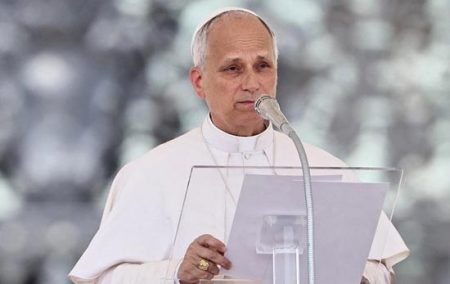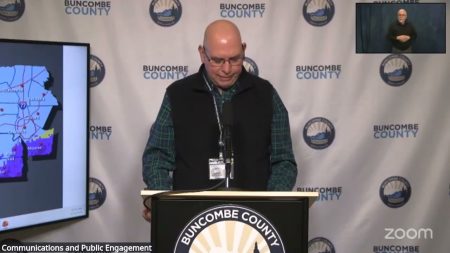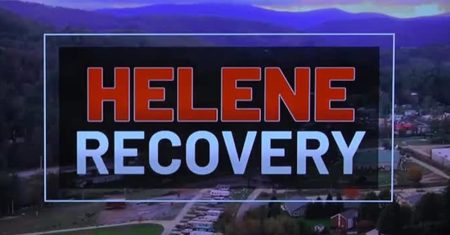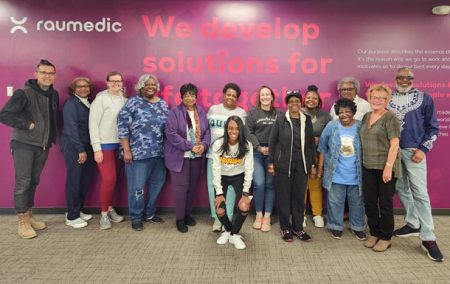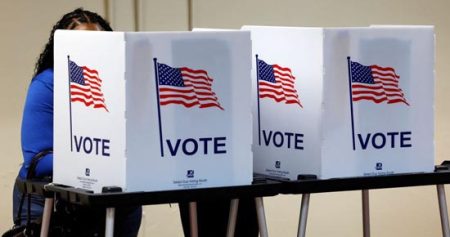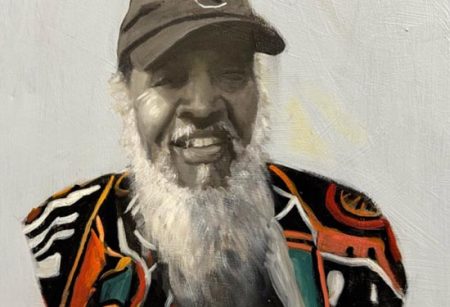Putting Faith to Work: Building Connections, Working for Justice
by Cathy Holt
Desmond Tutu once said, “Following Christ begins in worship and ends in politics.” For Sandra Smith of Holy Ground, a feminist retreat ministry, “faith comes into everything we do. Faith can inform our relationship to work and activism. Spiritual practice means getting in deeper touch with ourselves.”
Tyrone Greenlee is Executive Director of Christians for a United Community, an inter-racial group of Christians whose mission is social justice. “At CUC, I’ve found people who are fervent about social justice work. I’m standing with other Christian people, not of my race, who are interested in getting a living wage, or overcoming the disparities in education.”
These two spiritual activists spoke about some of their projects that are addressing key concerns of Asheville’s workforce.
 |
| Sandra Smith |
Sandra Smith, Holy Ground
Holy Ground conducts a six-month intensive program called “Spiritual
Resources for Community Leaders,” whose aim is to help people be more
effective in their work by nurturing them, giving them spiritual
practices, and creating community. The retreats meet Friday afternoon
through Saturday afternoon, once a month for six months, at Common
Light, a Quaker meeting center in Black Mountain. Joyce Hollyday, the
group facilitator, is writing a book on the Truth and Reconciliation
movements in South Africa and in Greensboro, N.C.
The first
intensive retreat began two years ago with activists Bob Smith
(Asheville-Buncombe Community Relations Council), Laura Gordon
(AFL-CIO), Chris Lescher (Affordable Housing Coalition), Jackie Sims
(Building Bridges), Robin Cape (now on Asheville City Council), Dale
Roberts, and Jacqueline Howard, among others. Some of their issues were
self-neglect, the need to nurture themselves, to feel less isolated in
their work. Gay, straight, black, white, male, and female formed such a
tight community that they continue to meet with each other. “Now,”
Smith relates, “Robin Cape says, ‘When I see Bob Smith in the room, I
know I’m not alone.’”
A newly begun
group for health care professionals includes doctors, nurses, and an
acupuncturist, of all different faiths. “We have ethical and
theological conversations, and we weave in spiritual practices. For the
health practitioners, we’re focusing on how to cope with feelings of
grief and loss when we deal with them daily. Where do we hold those
feelings in our bodies? How can we heal? And, where’s hope in all
that?” said Smith.
Spiritual
practices include meditation or prayer; keeping Sabbath (choosing one
day a week to keep free of work); practices of gratitude, and practices
of “hospitality” (intimate sharing in a trusting space). Members of the
groups covenant with one another and, though they meet only monthly,
telephone each other weekly, creating an intimate network of support.
Holy Ground
aspires to be a place of reconciliation for some deeply divided groups
in our community. Among the tangible artifacts Smith has gathered is a
quilt made by women whose loved ones had been murdered, together with
women whose loved ones had committed murder. “It was a beautiful quilt
of reconciliation; in the sharing which took place while making the
quilt, tears were shed and much healing took place,” Smith explained.
 |
| Tyrone Greenlee |
Tyrone Greenlee, Christians for a United Community
Greenlee sees it
as part of the Christian mission to address institutions that
perpetuate suffering, injustice and racism. “Jesus did that; he talked
about the balance of power, and what was happening to the ‘least of
these’. If we ask, ‘What would Jesus do?’ it is all about bringing
comfort to people. We’re called to bring comfort to those who are
hungry, who need a home. For social change work, which is long-haul
stuff, you really need a support system; having a Christian community
is crucial for the sustenance to keep going,” says Greenlee with a
smile.
CUC organized
the Asheville-Buncombe Living Wage Steering Committee, an interracial,
interdenominational group including members of NAACP, Working Families
Win, Affordable Housing Coalition, Pisgah Legal Services, and Temple
Beth Ha-Tephila. The committee’s goal was to get an ordinance passed by
Asheville City Council mandating a living wage for all city employees
and all who contract with the city. The living wage would be slightly
over $10 per hour without benefits, around $9 per hour with benefits.
(The Federal minimum wage is $5.15; North Carolina’s minimum hourly
wage will increase to $6.15, effective in 2007.)
CUC also
provides tutors and mentors for the after-school tutoring programs at
Stephens Lee Center and Reid Center. Many are recruited from the
neighborhoods the centers serve.
CUC members have
participated in the Damascus Road Anti-Racism process, a four-weekend
course on dismantling racism based on a Biblical perspective. “It
helped me to look at my own internalized oppression issues,” says
Greenlee. “For whites, it helps them become aware of their internalized
superiority issues, and how that plays out in the ways we relate to
each other. It leads up to a final organizing weekend, in which we
create anti-racism programs we take out into other churches in the
community.”
Greenlee has
been involved with Building Bridges since 1993, both as a steering
committee member and a small-group facilitator. Building Bridges has
offered two to three anti-racism trainings a year for 13 years now.
“It’s been a real blessing for me. This work helps me to be healthier,
to be more engaged, and truly respect and honor other human beings who
are different from me. It takes vigilant work, both personally and in
society, to deal with racism. I used to think, ‘Didn’t we do this whole
civil rights thing in the ’60s and ’70s? Isn’t it dealt with?’ But I
wasn’t aware of the subtle racism and institutional racism as much then
as I am now.” He characterizes Asheville as a community that is still
divided along racial lines, especially when it comes to worship.
Through the work of CUC, Greenlee hopes to heal that division.
For more information on Holy Ground, contact Sandra Smith at 236-0222.
For more information on Christians for a United Community, contact Tyrone Greenlee at 253-0749.



